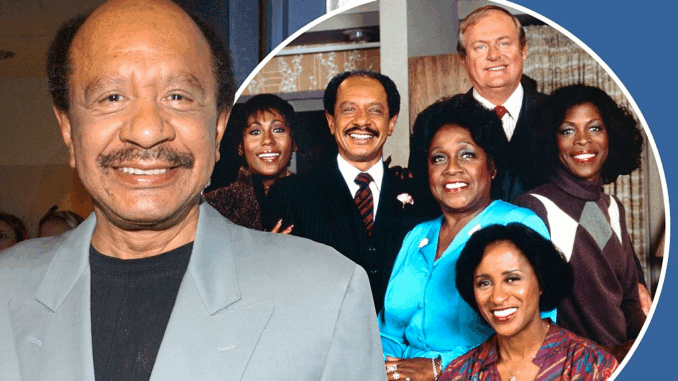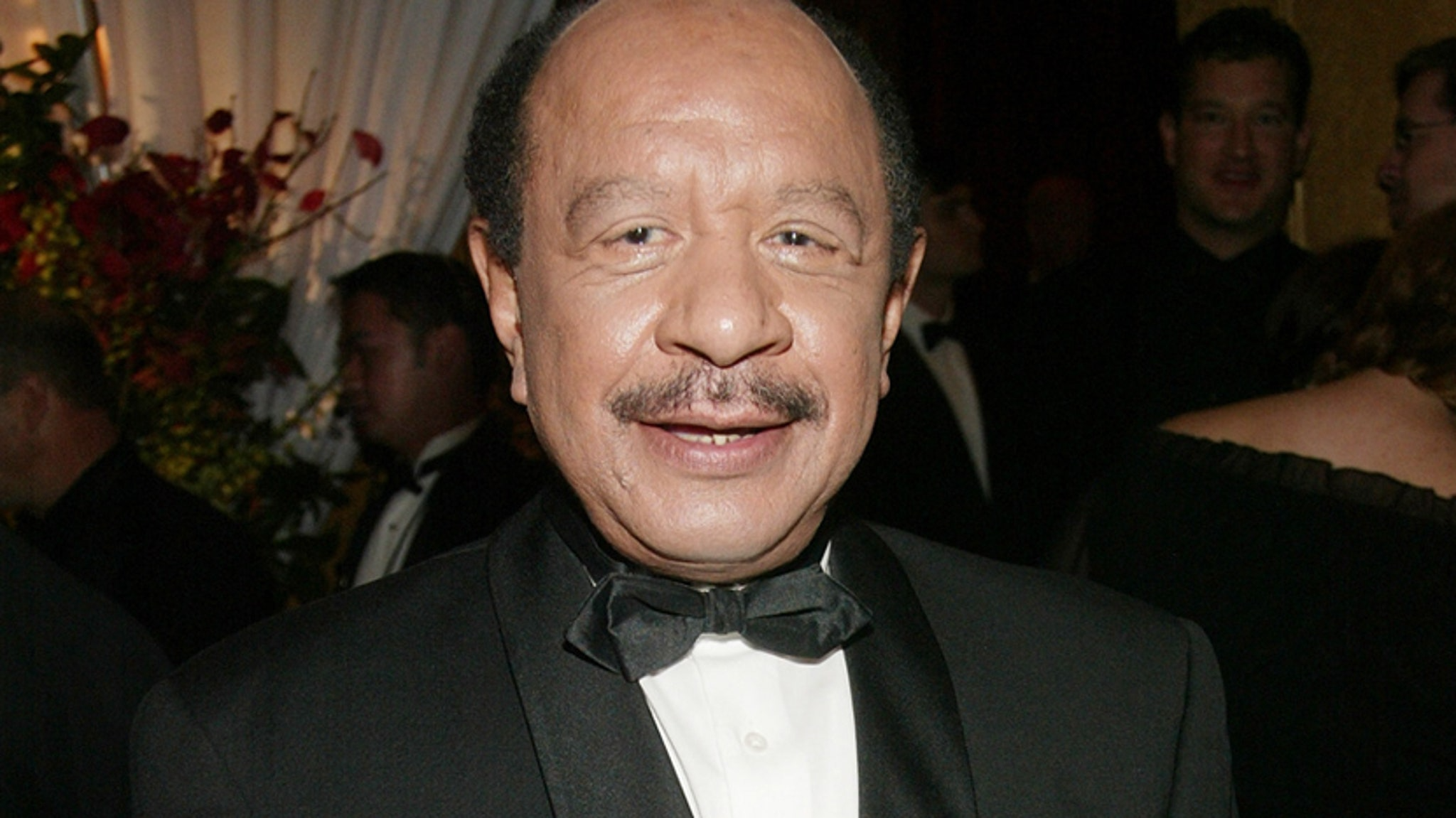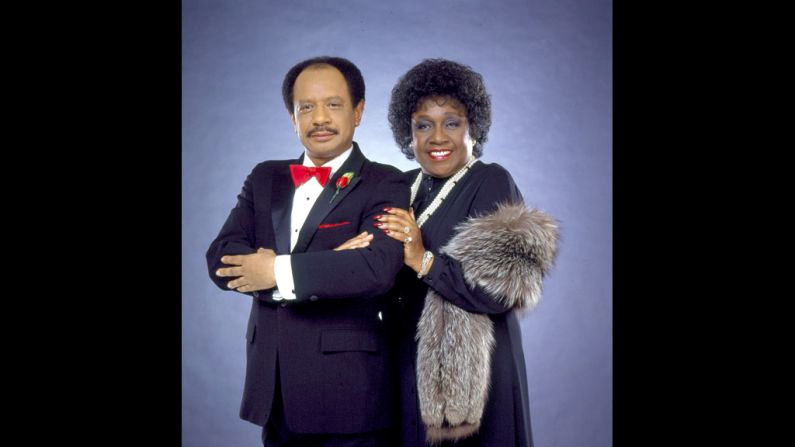
WASHINGTON — Sherman Hemsley — an actor best known for his overbearing sitcom roles, notably the upwardly mobile and bigoted African-American George Jefferson in the long-running show ‘‘The Jeffersons’’ and the egotistical minister in ‘‘Amen” — has died in El Paso. He was 74.
The death was confirmed by his agent, Todd Frank. No further details could be learned on when, where, or how he died.
Mr. Hemsley, who had a home in El Paso, grew up in a rough Philadelphia neighborhood, quit high school, and served in the US Air Force before becoming a mainstay of a prominent black theater company in New York. By the 1980s, television made him the most visible, successful black television actor after Bill Cosby.

In 1973, Mr. Hemsley debuted as George Jefferson on the Norman Lear sitcom ‘‘All in the Family,’’ playing the bombastic paterfamilias who integrates a Queens neighborhood lorded over by Archie Bunker (Carroll O’Connor).
Jefferson, who owned a dry-cleaning business, was the black counterpart to Bunker’s working-class racist, and the chemistry between the two allowed them to spew bluster and ignorance in comic droves.
Like other secondary characters from ‘‘All in the Family,’’ the Jeffersons spun off into their own series that aired on CBS from 1975 to 1985. In the new show, George Jefferson’s success allows him to move his family into a luxury high rise. Financial security did not stop George from bickering with his wife, Louise (Isabel Sanford), or their son, Lionel (Mike Evans and later Damon Evans).
The program’s theme song, ‘‘Movin’ on Up,’’ conveyed the comic situations sparked by George’s boorish and argumentative nature amid their new neighbors. Suspicious of white people, he does not hesitate to call them ‘‘honkies.’’
Reviewers noted a crucial distinction between Archie Bunker and George Jefferson. ‘‘The problem here is that unlike Bunker, we find little about George that we can like,’’ Joel Dreyfuss wrote in The Washington Post in 1975. ‘‘Bunker, under all the bigotry and irrational fears, displayed some warmth and human understanding. In this case we are left with George Jefferson as simply irrational and unlikable.’’
Dreyfuss added that it was hard to tell whether people disliked Jefferson because of race or because he was insufferable.
Mr. Hemsley said the role was counter to his own disposition, telling The Washington Post that Jefferson ‘‘seems like a wild man to me.’’ In finding the core of the man who made him popular with audiences for a decade, Mr. Hemsley added that George Jefferson is ‘‘like a little kid. You know, nobody really grows up. You just become more confused.’’
Sherman Alexander Hemsley was raised by a single mother who worked in a factory. His early life was a struggle, but he recalled the warm feeling of being applauded in a school show about fire safety.
‘‘I loved it, but had to forget about acting after elementary school because it was the sort of thing you just didn’t do in my rough neighborhood,’’ he told the Toronto Star in 1986.
He fell in with gangs, but quit after he was abandoned during a fight broken up by the police. He dropped out of school, joined the Air Force, and became a desk clerk based in South Korea and Japan.
After his discharge at 22, he attended a dramatic arts school in Philadelphia and spent years acting in church and community theater groups while working as a mailman. A 1967 appearance in the Jean Genet drama ‘‘The Blacks’’ at a Philadelphia theater led to an offer to join the prestigious Negro Ensemble Company acting workshop in New York.

Critics applauded Mr. Hemsley’s supporting role on Broadway in the 1970 musical comedy ‘‘Purlie,’’ based on the Ossie Davis play ‘‘Purlie Victorious.’’ The show made stars of Cleavon Little and Melba Moore, but Lear was taken with Mr. Hemsley and soon hired him for George Jefferson.
After ‘‘The Jeffersons’’ folded, Mr. Hemsley played Deacon Ernest Frye in ‘‘Amen,’’ which aired on NBC from 1986 to 1991. The show, set in the fictional First Community Church of Philadelphia, was among the first popular sitcoms to revolve around religion. It focused on the tensions between the strutting veteran deacon (Mr. Hemsley), whose father started the church, and a younger man with new ideas (Clifton Davis).
Mr. Hemsley was often described as an understated professional. He told the Chicago Tribune in 1988 that he was often frustrated by a lack of peer recognition. He felt slighted when he was not nominated for an Emmy for his leading role on ‘‘The Jeffersons’’ until the end of the series’ run.
Mr. Hemsley tried to parlay his success into a music career through the release of the 1989 single ‘‘Ain’t That a Kick in the Head’’ and a rhythm-and-blues album, ‘‘Dance,’’ in 1992.
He had a recurring voice-over role on the televised puppet series ‘‘Dinosaurs’’ in the early 1990s, reunited with his ‘‘Jeffersons’’ costar Sanford in commercials for Old Navy, Gap, and Denny’s, and continued to make guest appearances on shows until recently.
Mr. Hemsley knew his most loyal viewers were working-class, and he enjoyed tweaking Cosby, who featured white-collar characters on his sitcom.
‘‘It’s a very well-executed show,’’ he told the Tribune in 1988 of ‘‘The Cosby Show.’’ ‘‘Very professional. Of course, it’s not very funny. But it is professional.’’